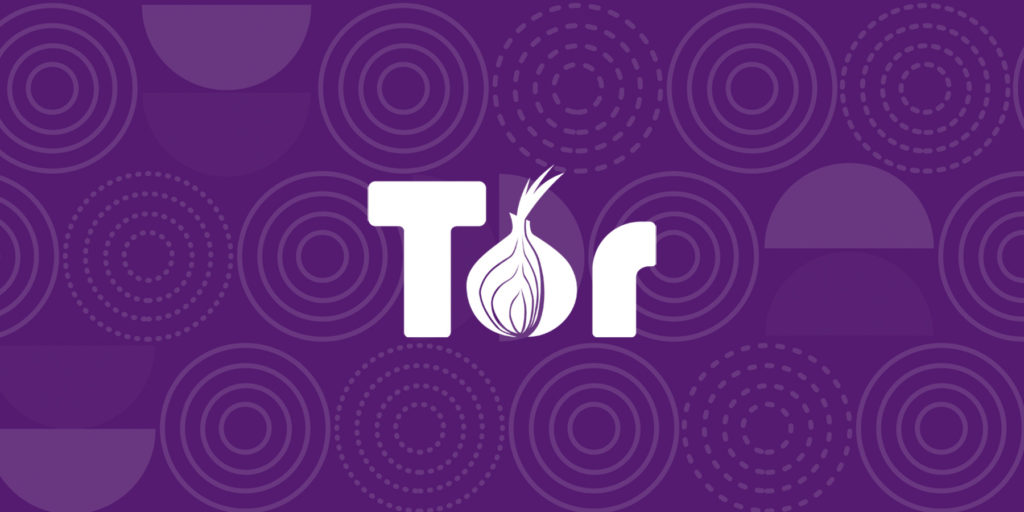If you’re an active web user, you must take online security and privacy seriously. There are many threats that Internet users face every day, such as identity theft, financial fraud, malware attacks, malicious hacks, and unauthorized monitoring. If you don’t want to be a victim of these cyberattacks, don’t surf the web without protection. There are many tools you can utilize for your online privacy. Some of these tools and services include a VPN (virtual private network), proxy sites, or alternate browsers. These solutions offer a protective shield for your data and also mask your online activities against spying. But each one is unique and works in different ways, thereby making it hard to decide on the one to use. In this article, we’ll discuss the two most popular online privacy solutions, Tor and VPN. We will tell you what they are, how they work, and their pros and cons. Afterward, you can easily choose whether it’s a VPN or Tor for you.
So, keep reading!

What is Tor
Tor, also known as the “Onion Router,” is a network that protects Internet users by anonymizing their requests. The network has a web browser through which you can conduct your searches, access different contents, and remain anonymous online.
Tor web browser is secure, reliable, and encrypts your data to mask your online footmarks against cybercriminals. You can easily download the browser for your mobile devices, Linux, Windows, or Mac.
Using the Tor browser to surf the web, no one can monitor or steal your sensitive information. Everything you do passes through the Tor network to ensure that your data will be encrypted many times.
So, the Tor browser will hide your identity, mask your activities, and ensure access to many online services if you’re a privacy-conscious individual.
How Tor browser works

Users of the Tor network connect to it through the Tor browser. Once users access the network, their outgoing web traffic will be rerouted through multiple relays before the final destination. It is during this process that the network encrypts your data to shield you from unauthorized monitoring.
Tor network uses multiple layers of privacy to protect users’ identities and data. Just like an onion has different layers protecting the freshest part, that’s how Tor protects you. Tor works with relays and nodes to ensure that no one finds you online.
Whenever you make any request on the web browser, your traffic goes into the entry guard/relays in the network. From there, it moves to the middle relays and finally to exit relays that take it to your search destination. The middle relays are Tor routers that shield your traffic as it moves online, while the end relays are the Internet Protocol address that spies will believe to be yours. Tor also uses unlisted routers, which IP blockers rarely notice to ensure proper data encryption on the network.
The relays on the Tor network only identify the IP address of a router before it. Once your traffic gets to a particular relay, your IP address disappears while the end relay’s IP becomes visible.

Advantages of Tor
1. Tor is free
The browser is free for everyone who wishes to protect their privacy online. If you’re a programmer, you can even download the project and implement any changes you want to the coding.
2. The browser is easy to use
You don’t need special training to use the browser. It’s just like other browsers such as Chrome, Opera, and Firefox, except that it hides your activities.
3. Tor offers multiple layers of privacy
The network is a surefire way of staying anonymous online. The network hides your Internet Protocol address no matter where you visit on the web.
Disadvantages of Tor
1. Tor browser doesn’t access every website
The government and some large organizations are usually wary of Tor users. The reason may be that it’s difficult to know the actual person behind the activity on the Tor network. As a result, some services are blocked from Tor users entirely, while you must complete annoying CAPTCHAS before accessing others.
2. Too slow for downloads
This is one of the challenges you can expect on Tor. The network is often slow due to the multiple relays that your traffic runs. Sometimes, loading videos or pictures takes too much time unless there are many users hosting relays.
3. Legal issues
Many people use the Tor browser, and it’s hard to control their activities. If you’re an exit relay to a user engaging in illegal transactions, the government will track your IP address and prosecute you for the crime.
What is a VPN
VPN stands for virtual private network. It’s a service that protects online users by encrypting their traffic entirely and changing their IP addresses. Surfing the web with a strong VPN network will give you access to unlimited online resources. It will also protect your details from hackers and help you to bypass geo-blocks to access your favorite services on the Internet.
With a VPN, you can say goodbye to government censorship and spying anywhere in the world. You can also change your location to any country of your choice for more browsing freedom.
How does a VPN work?

A strong VPN network usually has servers in many countries of the world. When you enter a command on the network, it routes your traffic through its servers first before accessing the Internet. By doing that, the server hides your identity and changes your location immediately. During all that process also, you’ll become undetectable to monitoring entities while accessing every resource or platform on the Internet.
A VPN enables you to appear to be a resident of any country you want online. If you need a service that’s banned in the UK, your VPN network will help you to change location to the U.S. immediately and access the service or platform.
Advantages of a VPN
1. It gives you control over your IP
If you don’t want anyone to identify you through your IP address, a VPN has your back. You can easily change locations online to fool hackers and spies through the network.
2. VPN helps you to access every content
Even in locations or countries where censorships are the order of the day, you can still access every content, platform, or service you need online.
3. A VPN encrypts all traffic
A strong VPN service ensures that all your traffic gets encrypted and not just your requests. If you want to download files, stream, or play games, a VPN will have you covered. No one can pinpoint your exact location as you go about your business.
4. Fast browsing speed
You won’t experience slow speed on a reputable VPN network. It doesn’t work like Tor. So, your signal only bounces through one server and moves on to the Internet immediately.
5. Highly adaptable
You can access a VPN network from any device of your choice. Once you’ve signed up for it, the servers are yours to use. You don’t need to download a web browser to access your VPN service. Instead, you can even install it on your router and protect your WiFi network.
Disadvantages of a VPN
1. A good VPN service is not free
Unlike Tor, you need to pay some money before accessing a reliable VPN network. There are free services, of course, but those freebies might compromise your data. Also, the authorities easily detect the IPs of free VPN services.
2. VPN providers can access your data
That’s not too good, but the reliable ones say that they don’t keep the activity logs of their users.
Tor vs. VPN
One of the most common features of these two online tools is that both can keep you safe and hidden online. So, if your only concern is to hide your identity, you can use any of them. But when it comes to extended functionalities, there are some areas to consider, such as:
Encryption
A VPN network encrypts all your traffic no matter what you do online. It helps you to enjoy anonymous streaming, gaming, Torrenting, and browsing. Tor, on the other hand, ends at encrypting requests you make on the Tor browser.
Cost
Tor network is easily accessible through the browser, and anyone can gain that access by downloading it. But to unleash the complete functionalities of a VPN, you must subscribe to the service or end up with unreliable ones online.
Accessing content
A VPN allows you to break through geo-blocks and censorships no matter the country or level of security. But for Tor, there are limits to the services you can access because you must pass through the Tor browser, which sometimes raises a red flag.
Browsing speed
Tor will keep you waiting, angry, and frustrated if there are no multiple relays on the network. Since you can’t control these things, it’s best to use a VPN that only bounces your traffic through one server. While you can’t stream or engage in P2P file-sharing with the Tor browser, you can do all that with a VPN.
IP control

You can change your IP address and your “virtual location” as many times as you want through a VPN network. But Tor relies on the relays to protect your IP address and doesn’t give you control over your IP address.
Anonymity
Browsing the Internet with a VPN doesn’t ensure complete anonymity because your VPN service providers can still see everything you do online. But when it comes to using Tor, no single entity is responsible for your online protection.
Final words on Tor vs. VPN
It’s best to protect yourself on the Internet than spend money on damage control. Both Tor and VPN are great when it comes to online protection. But using a VPN gives you more freedom to do a lot of things than Tor can provide.
However, before choosing a VPN service, ensure that it has servers worldwide and doesn’t keep activity logs. That way, you can be sure of your safety online. Remember, a VPN doesn’t mean 100% protection, but it is safer and more flexible than Tor.
Featured image: Shutterstock



